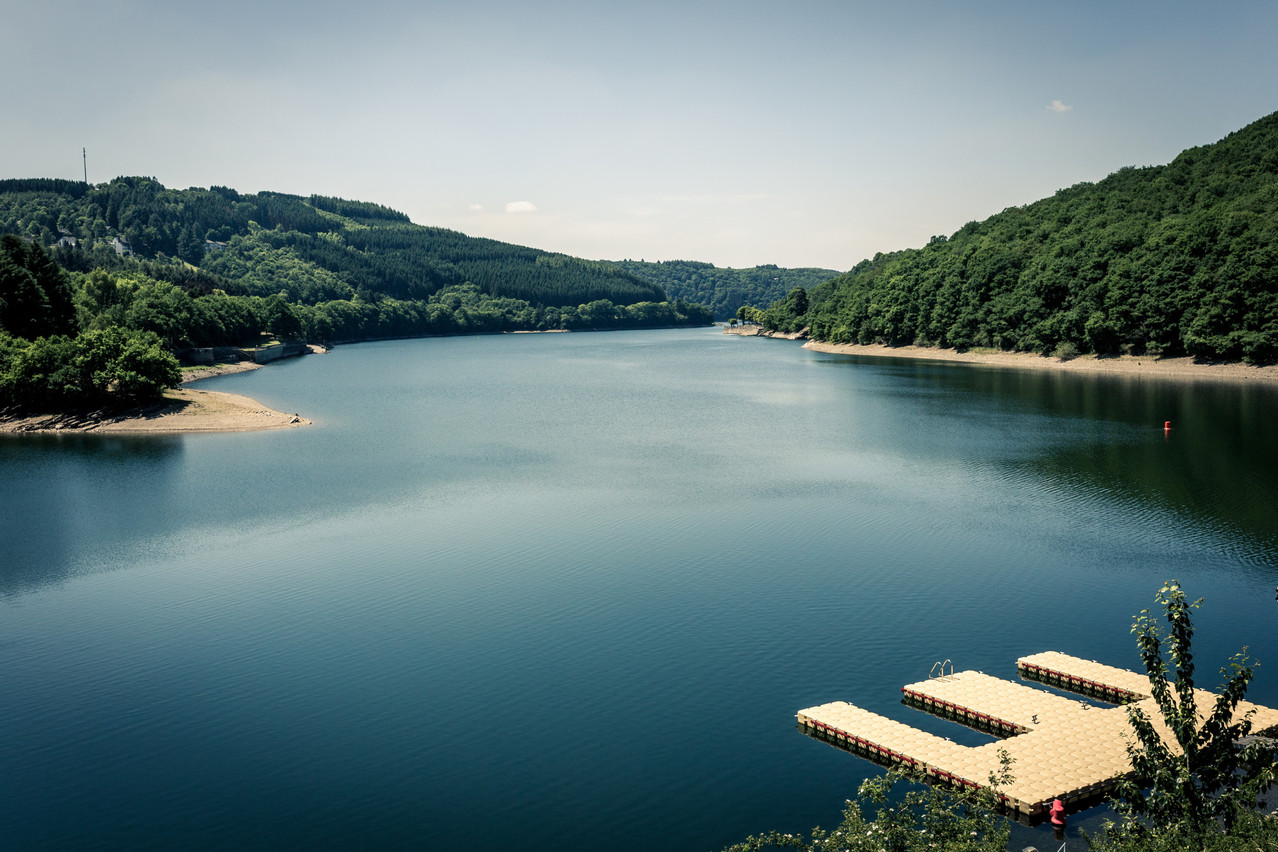The water management administration issued the warning on Tuesday, saying that the blue-green algae, which forms in warm, nutrient-rich water, had been spotted at the beaches of Rommwiss, Burfelt, Lultzhausen, Insenborn and Liefrange--the main beaches at the popular bathing lake.
Toxins produced by these cyanobacteria can be dangerous for humans, aquatic fauna, domestic animals and livestock, the administration explains. Studies by the Luxembourg Institute of Science and Technology (LIST) revealed the presence, among others, of the Limnothrix and the Planktothrix species, potentially producing toxins and potentially harmful to health.
Problems related to contact, ingestion or inhalation may include headaches, skin irritation and/or burns, or nausea. In addition to a ban on all water sports activities, the water authority urges dog walkers to not let their dogs or other domestic animals drink water from the lake. The Upper Sûre Lake is a reservoir providing drinking water for large parts of the grand duchy. The cyanobacteria outbreak does not impact drinking water as the raw water is extracted at a depth of 25 metres where cyanobacteria concentration is low. Furthermore, water treatment eliminates any toxins.
Similar bans were imposed at the Remerschen lakes at the end of August. At present, there is no ban on bathing at the lake in Weiswampach.
To track the water quality of the country’s bathing waters, visit
